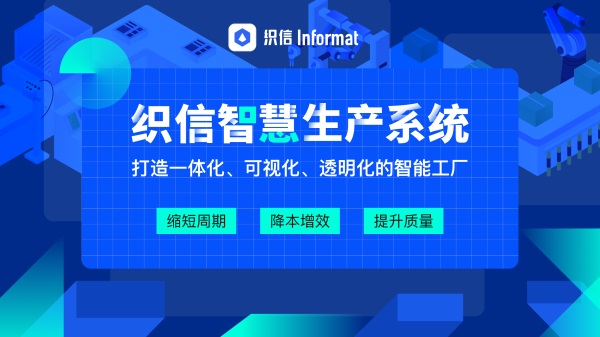宁波织信mes系统

宁波织信MES系统的优势在于:实时数据采集、生产过程优化、质量控制提升、设备管理高效和成本管理精准。其中,实时数据采集可以让管理者随时掌握生产线的运行情况,及时发现并处理问题,从而提高生产效率和产品质量。通过MES系统,可以实现对生产计划、物料管理、工艺流程等的全面监控和管理,有效降低生产成本,提升企业竞争力。

一、实时数据采集
实时数据采集是MES系统的核心功能之一。通过传感器和自动化设备,MES系统能够实时监控生产线上的各种参数,如温度、压力、速度等。这些数据可以帮助管理者及时了解生产线的运行状况,发现潜在问题,并进行快速调整。例如,当某条生产线的温度超出正常范围时,系统会立即发出警报,提醒操作人员采取措施,从而避免生产事故和产品质量问题。实时数据采集不仅提高了生产效率,还确保了产品的一致性和质量。
二、生产过程优化
MES系统通过对生产过程的全面监控和数据分析,能够优化生产流程,减少生产周期和生产成本。系统可以根据实际生产情况,自动调整生产计划和工艺流程,确保各个环节的协调和高效运作。例如,在生产高峰期,系统可以优先安排关键工序的生产,避免瓶颈和资源浪费。生产过程优化不仅提高了企业的生产能力,还降低了运营成本,增强了市场竞争力。
三、质量控制提升
质量控制是企业生产管理的核心环节,MES系统通过对生产全过程的监控和数据分析,能够有效提升产品质量。系统可以记录每个生产环节的参数和操作记录,追溯产品质量问题的根源,并及时采取纠正措施。例如,当某批次产品出现质量问题时,系统可以通过数据分析,找到问题产生的工艺环节和操作人员,进行针对性的培训和改进。质量控制提升不仅减少了次品率和返工成本,还提高了客户满意度和企业声誉。
四、设备管理高效
设备管理是生产管理的重要组成部分,MES系统通过对设备状态的实时监控和维护计划的自动化管理,提高了设备的利用率和运行效率。系统可以记录设备的运行参数和维护记录,预测设备的故障风险,并提前安排维护和保养。例如,当某设备的运行参数出现异常时,系统会自动发出维护提醒,避免设备故障和生产停工。设备管理高效不仅减少了设备故障和维修成本,还延长了设备的使用寿命,提高了生产线的稳定性和可靠性。
五、成本管理精准
成本管理是企业运营的关键环节,MES系统通过对生产过程的全面监控和数据分析,能够实现精准的成本管理。系统可以记录每个生产环节的成本数据,如原材料消耗、人工成本、设备维护成本等,进行全面的成本核算和分析。例如,当某生产线的成本超出预算时,系统可以通过数据分析,找到成本超支的原因,并提出改进建议。成本管理精准不仅降低了生产成本,还提高了企业的利润率和市场竞争力。
六、织信助力MES系统实现智能化
织信作为一款优秀的数据管理工具,能够与MES系统无缝对接,提升系统的智能化和数据处理能力。通过织信,企业可以实现对生产数据的可视化分析和展示,帮助管理者更直观地了解生产线的运行状况。织信还支持数据的实时同步和共享,实现各部门之间的信息协同和高效沟通。例如,当生产线出现故障时,管理者可以通过织信快速查看故障原因和处理进度,及时协调资源,恢复生产。织信的强大功能不仅提升了MES系统的智能化水平,还帮助企业实现数字化转型和精细化管理。
织信官网: https://informat.cn;
七、数据安全与隐私保护
在MES系统的应用过程中,数据安全与隐私保护是企业必须重视的问题。MES系统通过多层次的数据加密和访问控制,确保生产数据的安全性和机密性。系统可以根据用户角色和权限,设置不同的访问权限和操作权限,防止数据泄露和滥用。例如,只有授权的管理者才能查看和修改生产数据,而普通操作人员只能执行指定的操作。数据安全与隐私保护不仅保障了企业的知识产权和商业机密,还增强了客户的信任和合作意愿。
八、案例分析:宁波织信的成功实践
宁波织信作为一家领先的传感器制造企业,通过引入MES系统,实现了生产管理的全面升级和优化。通过实时数据采集,宁波织信能够随时掌握生产线的运行情况,及时发现和处理问题,提高了生产效率和产品质量。通过生产过程优化,企业缩短了生产周期,降低了生产成本,增强了市场竞争力。通过质量控制提升,企业减少了次品率和返工成本,提高了客户满意度和企业声誉。通过设备管理高效,企业提高了设备的利用率和运行效率,减少了设备故障和维修成本。通过成本管理精准,企业实现了全面的成本控制和利润提升。宁波织信的成功实践,充分证明了MES系统在生产管理中的重要作用和巨大价值。
九、MES系统的未来发展趋势
随着工业4.0和智能制造的不断推进,MES系统将迎来更加广阔的发展前景和应用空间。未来的MES系统将更加智能化、自动化和互联化,通过与物联网、大数据、人工智能等技术的深度融合,实现全面的智能制造和数据驱动的生产管理。例如,通过物联网技术,MES系统可以实现对设备和产品的全面感知和互联,提升生产线的自动化和智能化水平。通过大数据技术,MES系统可以进行全面的数据分析和预测,优化生产流程和资源配置。通过人工智能技术,MES系统可以实现自主决策和智能控制,提高生产效率和产品质量。MES系统的未来发展趋势,将为企业带来更加高效、灵活和智能的生产管理模式,助力企业实现数字化转型和智能化升级。
总之,宁波织信MES系统通过实时数据采集、生产过程优化、质量控制提升、设备管理高效和成本管理精准,帮助企业实现了生产管理的全面升级和优化。织信作为一款优秀的数据管理工具,与MES系统无缝对接,提升了系统的智能化和数据处理能力。未来,随着工业4.0和智能制造的不断推进,MES系统将迎来更加广阔的发展前景和应用空间,助力企业实现数字化转型和智能化升级。织信官网: https://informat.cn;
相关问答FAQs:
FAQs about Ningbo KeLi Sensor MES System
1. What is the Ningbo KeLi Sensor MES System, and how does it benefit manufacturing processes?
The Ningbo KeLi Sensor MES (Manufacturing Execution System) is an advanced software solution designed to optimize and streamline manufacturing operations. This system integrates various data points from production lines, providing real-time insights into manufacturing processes. By implementing this MES system, manufacturers can achieve higher operational efficiency through improved tracking and management of production activities. The system offers functionalities such as real-time monitoring, data analysis, and process control, enabling companies to reduce downtime, minimize waste, and enhance overall productivity.
Key benefits of the Ningbo KeLi Sensor MES System include:
- Enhanced Real-Time Monitoring: It provides a comprehensive view of the entire manufacturing process, allowing for immediate detection and response to issues.
- Data-Driven Decision Making: With robust data analytics, manufacturers can make informed decisions to optimize processes and resource allocation.
- Increased Efficiency: By automating routine tasks and providing actionable insights, the system helps in reducing operational delays and improving production rates.
This system is particularly valuable for industries that require precise control and monitoring, such as automotive, electronics, and pharmaceuticals.
2. How does the Ningbo KeLi Sensor MES System integrate with existing manufacturing infrastructure?
Integrating the Ningbo KeLi Sensor MES System with existing manufacturing infrastructure involves several key steps to ensure seamless operation and data flow. The integration process typically includes:
- Assessment of Current Systems: Evaluating the existing manufacturing setup, including hardware, software, and communication protocols, to understand compatibility requirements.
- Customization and Configuration: Adapting the MES system to fit the specific needs of the manufacturing environment, including configuring data collection points and user interfaces.
- Data Integration: Establishing connections with existing databases, ERP systems, and other software to enable smooth data exchange and synchronization.
- Training and Support: Providing training for staff to effectively use the new system and offering ongoing technical support to address any issues that may arise.
Successful integration ensures that the MES system enhances the existing infrastructure without disrupting ongoing operations. It also allows for the consolidation of data across different systems, leading to more cohesive and efficient management of manufacturing processes.
3. What are the common challenges faced when implementing the Ningbo KeLi Sensor MES System, and how can they be overcome?
Implementing the Ningbo KeLi Sensor MES System can present several challenges, which, when addressed effectively, lead to successful deployment and operation. Common challenges include:
- Compatibility Issues: Integrating the MES system with legacy systems or equipment may pose compatibility challenges. To overcome this, a thorough compatibility assessment should be conducted, and necessary adaptations or upgrades to existing systems may be required.
- Data Migration and Integration: Migrating historical data from existing systems to the new MES system can be complex. A well-planned data migration strategy and rigorous testing of data integrity can mitigate this challenge.
- User Training and Adaptation: Employees may need time to adapt to the new system. Providing comprehensive training and creating user-friendly interfaces can facilitate a smoother transition.
- Resistance to Change: Organizational resistance to new technology can be a barrier. Engaging stakeholders early in the process and demonstrating the benefits of the MES system can help in gaining support and easing the transition.
By proactively addressing these challenges and focusing on careful planning and execution, companies can successfully implement the Ningbo KeLi Sensor MES System and leverage its benefits to enhance manufacturing efficiency and effectiveness.
版权声明:本文内容由网络用户投稿,版权归原作者所有,本站不拥有其著作权,亦不承担相应法律责任。如果您发现本站中有涉嫌抄袭或描述失实的内容,请联系邮箱:hopper@cornerstone365.cn 处理,核实后本网站将在24小时内删除。
最近更新
立即开启你的数字化管理
用心为每一位用户提供专业的数字化解决方案及业务咨询




